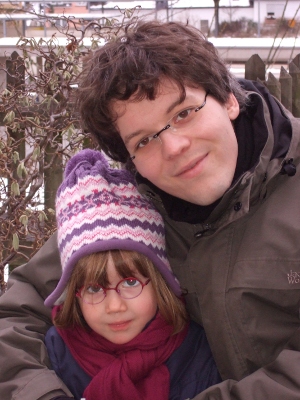Some people use '--without-recommends' switch and the problem is gone. I think that's overkill.
This post will tell how (would I recommend) to deal with unwanted recommends. The following text tells about cupt package manager, and though ideas are applicable to any package managers, the techniques may differ.
Stage 1. Facing problems
Suppose we want to install the package kde-minimal:
-8<-
$ sudo cupt install kde-minimal
[sudo] password for jackyf:
Building the package cache... [done]
Initializing package resolver and worker... [done]
Scheduling requested actions... [done]
Resolving possible unmet dependencies...
The following 16 packages will be INSTALLED:
dolphin kappfinder kde-minimal kdebase-apps kdebase-bin kdebase-data kdepasswd
kfind kinfocenter konqueror konqueror-nsplugins kwrite libkonq5
libkonq5-templates libkonqsidebarplugin4 plasma-widget-folderview
The following 1 packages will be UPGRADED:
konsole
Need to get 6024KiB/6024KiB of archives. After unpacking 14.9MiB will be used.
Do you want to continue? [y/N/q]
->8-
Umm, kinfocenter? No, we don't want it to be installed.
Stage 2. Searching for a reason
Now we will use the 'reason tracking' feature of libcupt's resolver. Let's add '-s' switch (simulating) and '-D' switch (tracking reasons):
-8<-
$ cupt -s install kde-minimal -D
Building the package cache... [done]
Initializing package resolver and worker... [done]
Scheduling requested actions... [done]
Resolving possible unmet dependencies...
The following 16 packages will be INSTALLED:
dolphin
reason: kdebase-apps 4:4.3.4-1 depends on 'dolphin (>= 4:4.3.4-1)'
kappfinder
reason: kdebase-apps 4:4.3.4-1 depends on 'kappfinder (>= 4:4.3.4-1)'
kde-minimal
reason: user request
kdebase-apps
reason: kde-minimal 5:55 depends on 'kdebase-apps (>= 4:4.3.1)'
kdebase-bin
reason: kdebase-apps 4:4.3.4-1 depends on 'kdebase-bin (>= 4:4.3.4-1)'
kdebase-data
reason: kappfinder 4:4.3.4-1 depends on 'kdebase-data (= 4:4.3.4-1)'
kdepasswd
reason: kdebase-apps 4:4.3.4-1 depends on 'kdepasswd (>= 4:4.3.4-1)'
kfind
reason: kdebase-apps 4:4.3.4-1 depends on 'kfind (>= 4:4.3.4-1)'
kinfocenter
reason: kdebase-apps 4:4.3.4-1 recommends 'kinfocenter (>= 4:4.3.4-1)'
konqueror
reason: kdebase-apps 4:4.3.4-1 depends on 'konqueror (>= 4:4.3.4-1)'
konqueror-nsplugins
reason: kdebase-apps 4:4.3.4-1 recommends 'konqueror-nsplugins (>= 4:4.3.4-1)'
kwrite
reason: kdebase-apps 4:4.3.4-1 depends on 'kwrite (>= 4:4.3.4-1)'
libkonq5
reason: kdebase-apps 4:4.3.4-1 depends on 'libkonq5 (>= 4:4.3.4-1)'
libkonq5-templates
reason: libkonq5 4:4.3.4-1 depends on 'libkonq5-templates kdesktop'
libkonqsidebarplugin4
reason: konqueror 4:4.3.4-1 depends on 'libkonqsidebarplugin4 (>= 4:4.3.4)'
plasma-widget-folderview
reason: kdebase-apps 4:4.3.4-1 depends on 'plasma-widget-folderview (>= 4:4.3.4-1)'
The following 1 packages will be UPGRADED:
konsole
reason: synchronized with package 'kdebase-apps'
Need to get 6024KiB/6024KiB of archives. After unpacking 14.9MiB will be used.
Do you want to continue? [y/N/q]
->8-
Now, the output is much bigger. Every package has reason(s) to change its state appended. Let's look at the chain: kinfocenter is installed, because... kdebase-apps is to install. Ok, look further, kdebase-apps is to install because... of kde-minimal. The final chain is 'kde-minimal -> kdebase-apps -> kinfocenter'.
Stage 2.5. Analyzing reason
After determining a full chain one may try to think - is this dependency chain looks OK? Maybe, some Depends/Recommends should be turned up to a less strict dependencies? If that so, it's a good idea to fire a command 'reportbug <package>' to report an unwanted dependency.
In this example, the dependency chain looks OK (at least, to me :)).
Stage 3. Installing a package without unwanted dependency(ies)
The resolution of the problem depends on the answer to the question "Why I don't want this package to be installed?"
Case 1. Only this time/package
If the answer is, say, "Because dependency 'kdebase-apps -> kinfocenter' doesn't make sense on this system", then you do:
-8<-
$ sudo cupt install kde-minimal kinfocenter-
[sudo] password for jackyf:
Building the package cache... [done]
Initializing package resolver and worker... [done]
Scheduling requested actions... [done]
Resolving possible unmet dependencies...
The following 15 packages will be INSTALLED:
dolphin kappfinder kde-minimal kdebase-apps kdebase-bin kdebase-data kdepasswd kfind konqueror konqueror-nsplugins kwrite libkonq5 libkonq5-templates libkonqsidebarplugin4 plasma-widget-folderview
The following 1 packages will be UPGRADED:
konsole
Need to get 5463KiB/5463KiB of archives. After unpacking 13.2MiB will be used.
Do you want to continue? [y/N/q]
->8-
And that's all, kinfocenter won't be installed.
Consequences:
1. This answer implies that you are not against installing kinfocenter if some other package needs it. So, while installing other packages which recommend kinfocenter cupt will suggest you to install kinfocenter again.
2. If you will want to upgrade the package, and the new version contains the same relation, cupt will not suggest to install kinfocenter.
Case 2. Forever
If the answer is "Because I don't want to see kinfocenter in my system ever", then the good choice is APT pinning system.
Place the next three lines into your APT preferences file (usually, /etc/apt/preferences or any file in /etc/apt/preferences.d directory):
-8<-
Package: kinfocenter
Pin: version *
Pin-Priority: -10000
->8-
-10000 is a very low priority, usual priorities are (0 - 1000), so cupt will not ever suggest you to install kinfocenter because of soft (Recommends or Suggests) dependencies. Moreover, if in some actions cupt will need to choose between, say 'kde-virtual kde-virtual-alternate', where kde-virtual depends on kinfocenter and kde-virtual-alternate does not, then cupt will choose kde-virtual-alternate. The exceptions possible in (very unlikely to happen) cases, when non-installing kinfocenter will result in very bad solution for selected actions. The less priority kinfocenter has, the less chances it has to be installed when not requested explicitly (as in 'cupt install kinfocenter').


 The two first interviews were dedicated to long-time Debian developers. This time I took the opposite approach, I interviewed David Kalnischkies who is not (yet) a Debian developer. But he s contributing to one of the most important software within Debian the APT package manager since 2009. You can already see him in many places in Debian sharing his APT knowledge when needed.
English is not his native language and he s a bit shy, but he accepted the interview nevertheless. I would like to thank him for the efforts involved and I hope his story can inspire some people to take the leap and just start helping My questions are in bold, the rest is by David.
Who are you?
I am David Kalnischkies, 22 years old, living in the small town Erbach near Wiesbaden in Germany and I m studying computer science at the TU Darmstadt. Furthermore I am for more than half a decade now young group leader of my hometown.
I never intended to get into this position, but it has similarities with my career in this internet-thingy here. I don t remember why, but in April 2009 I was at a stage that some simple bugs in APT annoyed me so much that I grabbed the source, and most importantly I don t know why I did it but I published my changes in Mai with
The two first interviews were dedicated to long-time Debian developers. This time I took the opposite approach, I interviewed David Kalnischkies who is not (yet) a Debian developer. But he s contributing to one of the most important software within Debian the APT package manager since 2009. You can already see him in many places in Debian sharing his APT knowledge when needed.
English is not his native language and he s a bit shy, but he accepted the interview nevertheless. I would like to thank him for the efforts involved and I hope his story can inspire some people to take the leap and just start helping My questions are in bold, the rest is by David.
Who are you?
I am David Kalnischkies, 22 years old, living in the small town Erbach near Wiesbaden in Germany and I m studying computer science at the TU Darmstadt. Furthermore I am for more than half a decade now young group leader of my hometown.
I never intended to get into this position, but it has similarities with my career in this internet-thingy here. I don t remember why, but in April 2009 I was at a stage that some simple bugs in APT annoyed me so much that I grabbed the source, and most importantly I don t know why I did it but I published my changes in Mai with 

